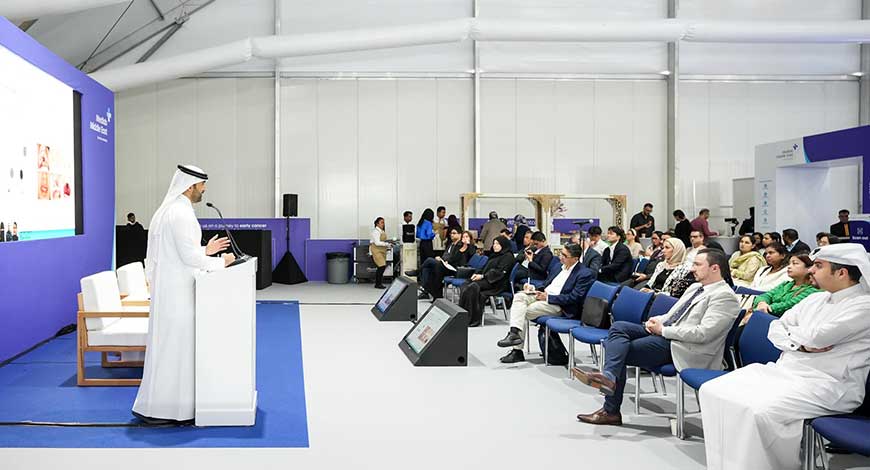Events
ME genomic research key to improving health span and quality of life

According to the recently published Global Healthspan Report: A New Agenda for Global Health, cardiovascular disease, cancer and obesity represent one-third of the disease burden in the Middle East and Africa (MENA) region. In Saudi Arabia, in particular, non-communicable disease prevalence is 32.15% and is responsible for 73% of all deaths. Meanwhile, in Oman, almost 20% of all colorectal cancer patients were diagnosed under the age of 40, partly attributed to changes in lifestyle and the adoption of Western diets.
Speaking at the NextGen Medicine Conference, taking place at Medlab Middle East from 5 – 8 February at the Dubai World Trade Centre (DWTC), Dr Karolina Kobus, Head of Molecular Genomics and Precision Medicine Laboratory and Technology and Innovation Advisor, EXPRESSMED Diagnostics & Research, emphasised that genomic data, personalised medicine, along with emerging technologies such as artificial intelligence (AI) can improve preventative strategies and enhance, not just the length, but the quality of our lives.
Kobus added: “Also of critical importance are the local genomics initiatives being carried out, such as the Emirati Genome Programme and the Qatar Genome Programme, focusing on building internal capacities and limiting outsourcing. We must also understand why preventative and diagnostic strategies should be tailored to the genetic makeup of the local population.”
The NextGen Medicine Conference at Medlab 2024, chaired by Dr Kobus, delves into the intersection of medicine and artificial intelligence, discussing cutting-edge AI
applications in diagnostics, treatment development, personalised medicine, and healthcare delivery.
Elsewhere on the agenda today at the conference, Dr Mohammed Uddin from the Mohammed Bin Rashid University of Medicine and Health Sciences in Dubai, UAE, discussed recent Arab Genome initiatives at the Centre for Applied and Translational Genomics (CATG) and Dr Anas Hamad from the Hamad Medical Corporation in Qatar highlighted the importance of precision oncology and pharmacogenetics. Other topics included a Middle Eastern perspective on breast cancer genomics, personalised oncology, and artificial intelligence in pathology.
The conference forms part of the newly introduced NextGen Medicine feature at Medlab Middle East, hosted in partnership with Bahrain-based ExpressMed Diagnostics and Research. The NextGen Medicine zone and conference showcases over 100 exhibitors and focuses on a pioneering area in the medical laboratory field that aims to customise healthcare for individuals, using advanced technologies and new developments in medical science.
Tom Coleman, Senior Exhibition Director, Medlab Series, Informa Markets, said: “At Medlab Middle East 2024, leading researchers in NextGen medicine, collaborating with ExpressMed Diagnostics and Research, aim to enhance global science and regional healthcare through genome sequencing tailored treatments. Genetic disorders are widespread in the Arab world, making it vital to understand genetics. The UAE’s 10-year genome strategy and advanced technologies like AI will benefit Emiratis and researchers studying Arab populations’ healthcare needs.”
Medlab Middle East is expected to welcome more than 30,000 visitors and 900 exhibitors representing 180 countries. Tracks at the event include Laboratory Management, Haematology, Quality Management, Clinical Microbiology, Histopathology, Clinical Chemistry, Clinical Genomic Interpretation, Future of the Lab, Immunology, Blood Transfusion Medicine, and Sustainability in the Lab. The Medlab Middle East Congress returns for another year, providing education and solutions to advance laboratory skills to over 5,000 delegates.
The NextGen Medicine Conference continues on 6 February 2024 at Medlab Middle East at the Dubai World Trade Centre.
MB Bureau














